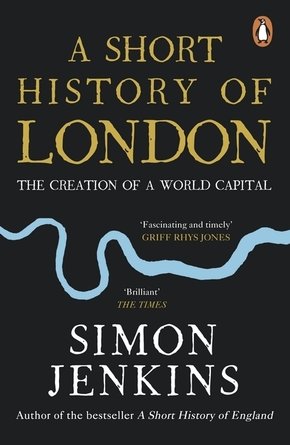A Short History of London - The Creation of a World Capital
| Verlag | Penguin Books UK |
| Auflage | 2020 |
| Seiten | 432 |
| Format | 12,9 x 19,8 x 2,7 cm |
| B-format paperback | |
| Gewicht | 345 g |
| Artikeltyp | Englisches Buch |
| ISBN-10 | 0241985358 |
| EAN | 9780241985359 |
| Bestell-Nr | 24198535EA |
LONDON: a settlement founded by the Romans, occupied by the Saxons, conquered by the Danes and ruled by the Normans. This changeful place became a medieval maze of alleys and courtyards, later to be chequered with grand estates of Georgian splendour. It swelled with industry and became the centre of the largest empire in history. And having risen from the rubble of the Blitz, it is now one of the greatest cities in the world.
From the prehistoric occupants of the Thames Valley to the preoccupied commuters of today, Simon Jenkins brings together the key events, individuals and trends in London's history to create a matchless portrait of the capital. He masterfully explains the battles that determined how London was conceived and built - and especially the perennial conflict between money and power.
Based in part on his experiences of and involvement in the events that shaped the post-war city, and with his trademark colour and authority, Jenkins shows above all ho w London has taken shape over more than two thousand years. Fascinating for locals and visitors alike, this is narrative history at its finest, from the most ardent protector of our heritage.
'A handsome book ... full of the good judgements one might hope for from such a sensible and readable commentator, and they alone are worth perusing for pleasure and food for thought' Michael Wood, New Statesman on A Short History of England
'Any passably cultured inhabitant of the British Isles should ask for, say, three or four copies of this book for Christmas...I can imagine no better companion on a voyage across England' Max Hastings, Daily Telegraph on England's Thousand Best Houses
Rezension:
Fascinating and timely. Truly the story of the fabric we see before us. Required reading for every developer, planner or councillor who holds London in trust today Griff Rhys Jones

